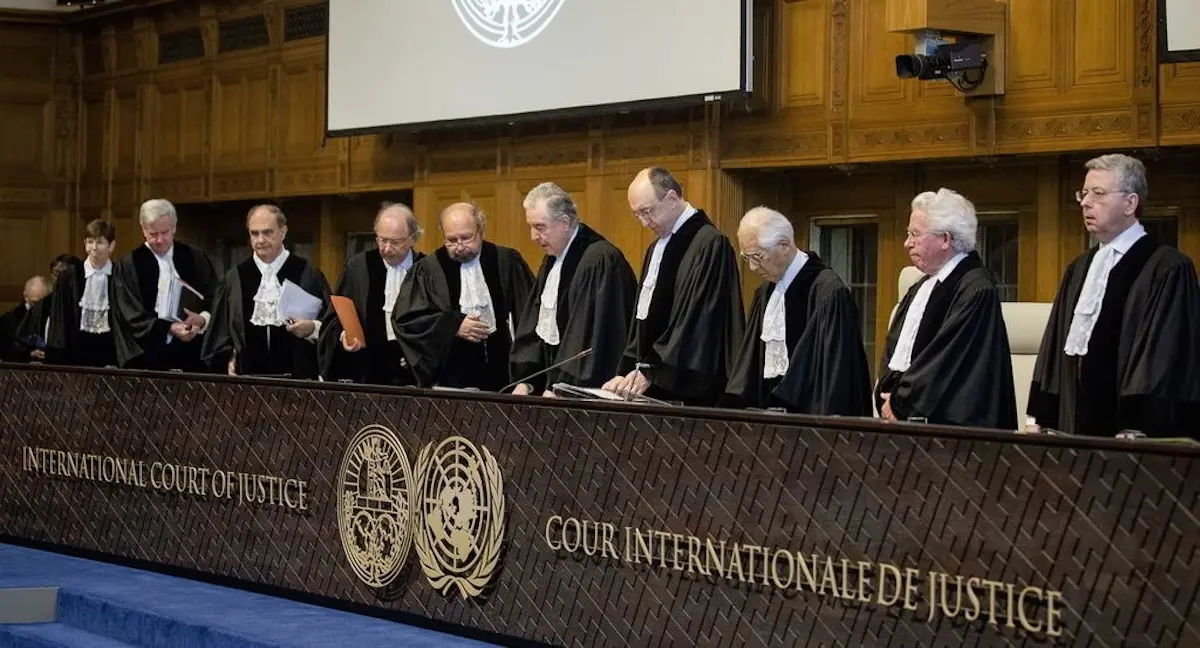Pending the International Court of Justice

Nothing less than a lawsuit for genocide of the Palestinian people by the Israel Defense Forces following orders from Benjamin Netanyahu's government. This is what the South African Government has submitted to the International Court of Justice, based in The Hague.
A very big word, huge, quite trivialized lately by the use and abuse of it by people and institutions that are not very rigorous precisely when invoking it.
The plaintiff, with abundant images of the destruction of the Gaza Strip, using the large numbers of dead and wounded in accordance with those provided by the Hamas-run Ministry of Health (more than 23,000 and 60,000, respectively), in addition to the most draconian proposals of the most extremist ministers of the Jerusalem government, believes that there is a basis for filing the lawsuit.
But, above all, to ask the ICJ for a decisive interim injunction: to order provisional measures to halt the Israeli military offensive in Gaza.
The respondent, Israel, no less well equipped with copious graphic documentation, not only of the attacks launched by 3,000 Hamas assailants on October 7 against an open-air festival and two kibbutzim, in which they murdered, massacred, raped and kidnapped Israeli citizens, but also of Hamas's actions on the Gazan population since taking full control of the Strip, denies any justification for the complaint.
It therefore refutes the allegations of South Africa, whose representatives it accused of "distorting reality, knowingly lying about what is happening in Gaza", and ultimately denying that there is any basis for such a claim.
The 15 judges who make up the ICJ are likely to deliver their verdict in a few days, on exactly what is being asked of them: whether or not to adopt the interim measures that would put an end to Israel's military offensive. The Court has no tools to enforce what it decides, but if it agrees to adopt such a measure and Israel does not comply, Israel's moral authority will be considerably undermined.
The purpose of ordering interim measures is thus to freeze the legal situation between the parties in order to ensure the integrity of a final judgment, which in its case would come much later.
Consequently, the ICJ will not rule on whether or not Israel is committing genocide. Should it decide to address that substantive question, its verdict would take several years to reach, after many hearings, evidence and witnesses. This is already a big deal, and it is important not to contribute to further trivializing the use of the term "genocide", coined by Raphael Lemkin, the Jew who lost 49 family members in the Holocaust, and which was eventually inscribed in the 1948 Convention on the Prevention and Punishment of the Crime of Genocide.
With 19 articles, it provides the first legal definition of the term, and in its second article it establishes the five acts that would be wholly or partially intended to destroy a national, ethnic, racial or religious group: killing members of the group; causing serious bodily or mental harm to members of the group; intentionally subjecting the group to conditions of life calculated to bring about its physical destruction in whole or in part; imposing measures intended to prevent the birth of children within the group; and forcibly transferring children of the group to another group.
Despite the surprise caused by the South African claim, obviously because of the scale and worldwide public impact of its content, it is worth noting that the ICJ is currently receiving and ruling on claims seeking relief and favorable resolution of conflicts of varying intensity.
It is currently examining two ongoing cases of Ukraine against Russia for financing terrorism, racial discrimination and genocide. But in addition, in the last three months it has received other applications, for example, from Canada and the Netherlands requesting provisional measures against Syria to put an end to "acts of torture and other cruel, inhuman or degrading treatment or punishment".
Armenia also obtained from the Court interim measures to protect from harm and discrimination Armenians who wanted to return to Nagorno-Karabakh and those who remained (approximately 20,000 people), after Baku assumed full control of the territory and the official dissolution of the Republic of Artsakh.
Also last November, Canada, Denmark, France, Germany, the Netherlands, the United Kingdom and the Maldives asked the Court for the right to intervene to protect the Rohingya from the genocide being carried out against them by the Myanmar military junta.
And finally, most recently, Guyana requested and obtained precautionary measures to prevent the annexation of the Essequibo by the Bolivarian Republic of Venezuela.

